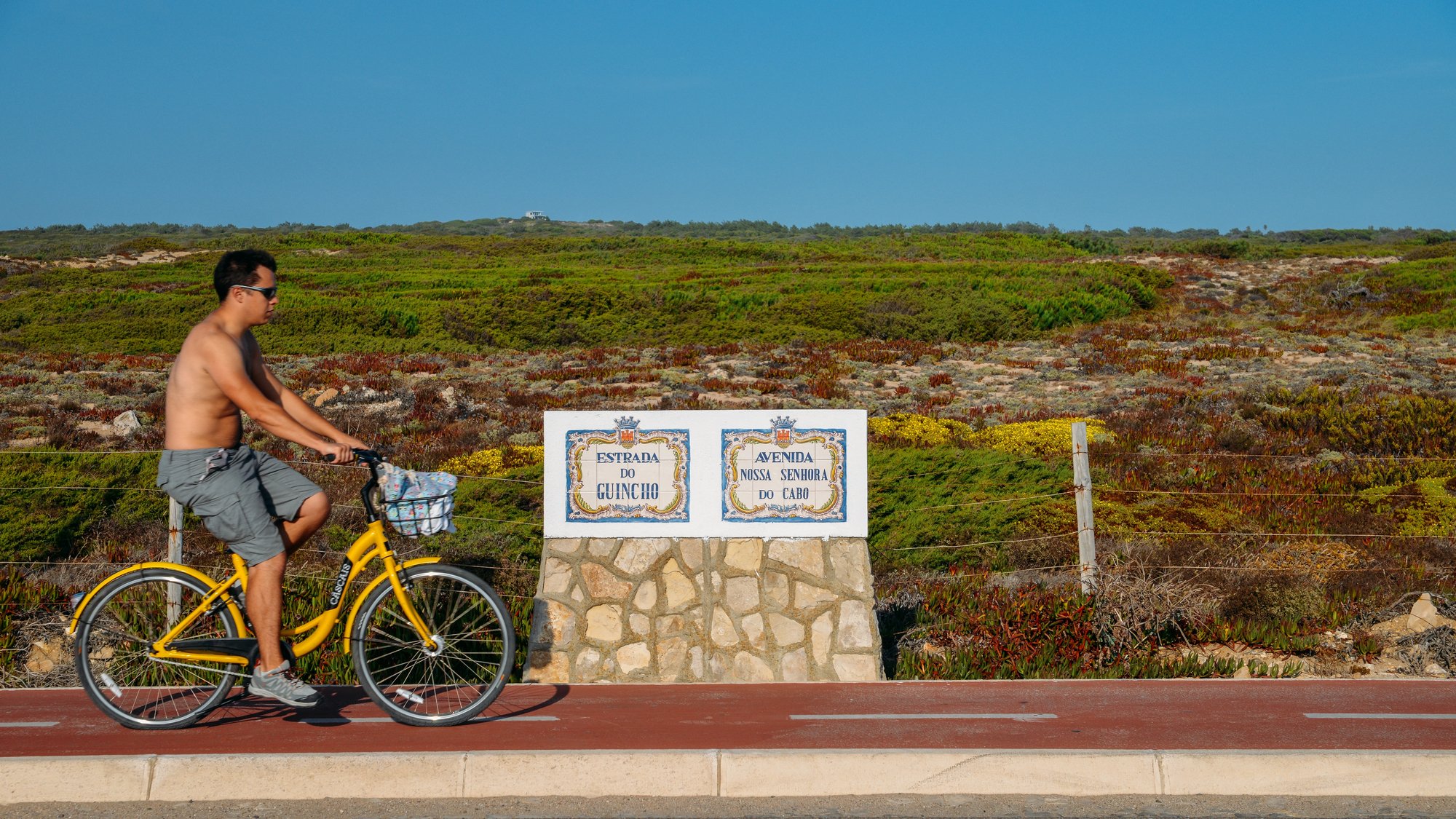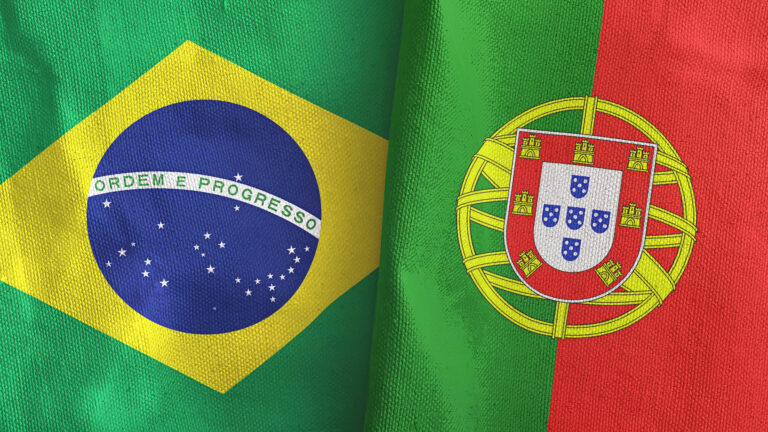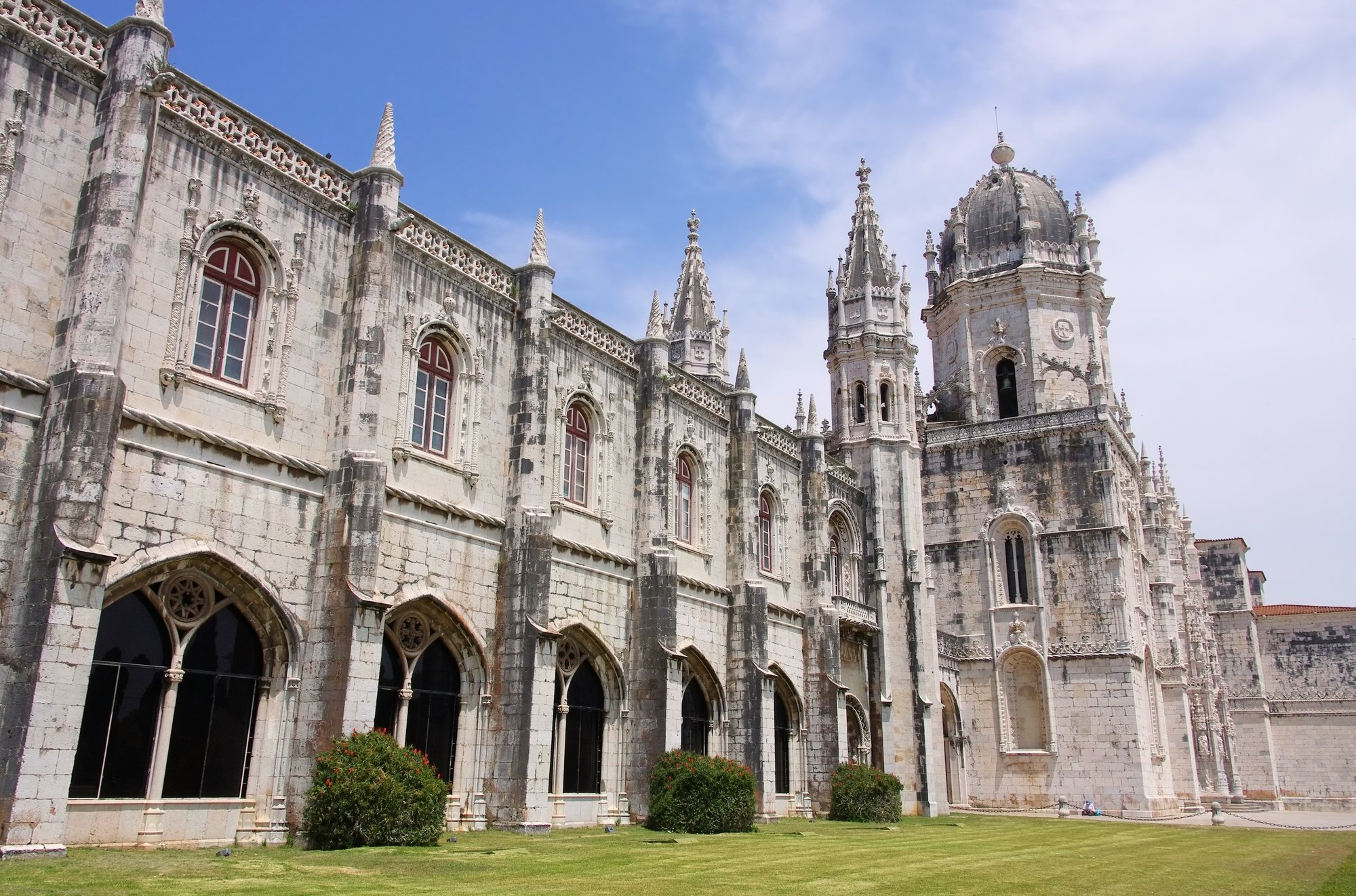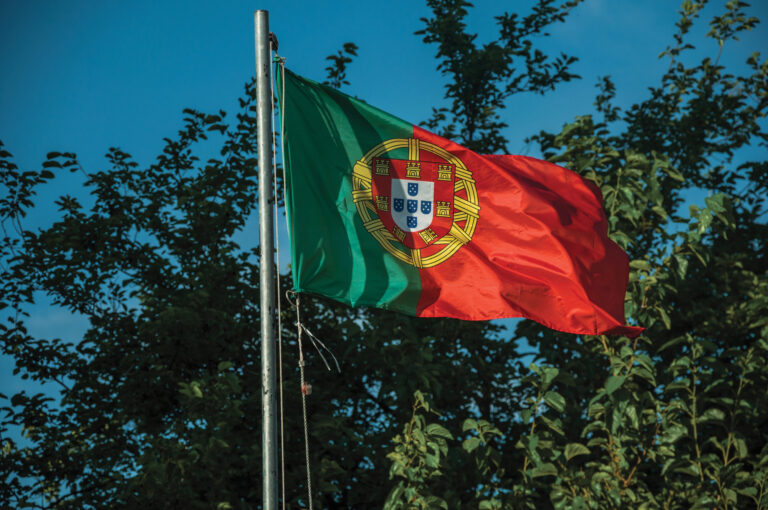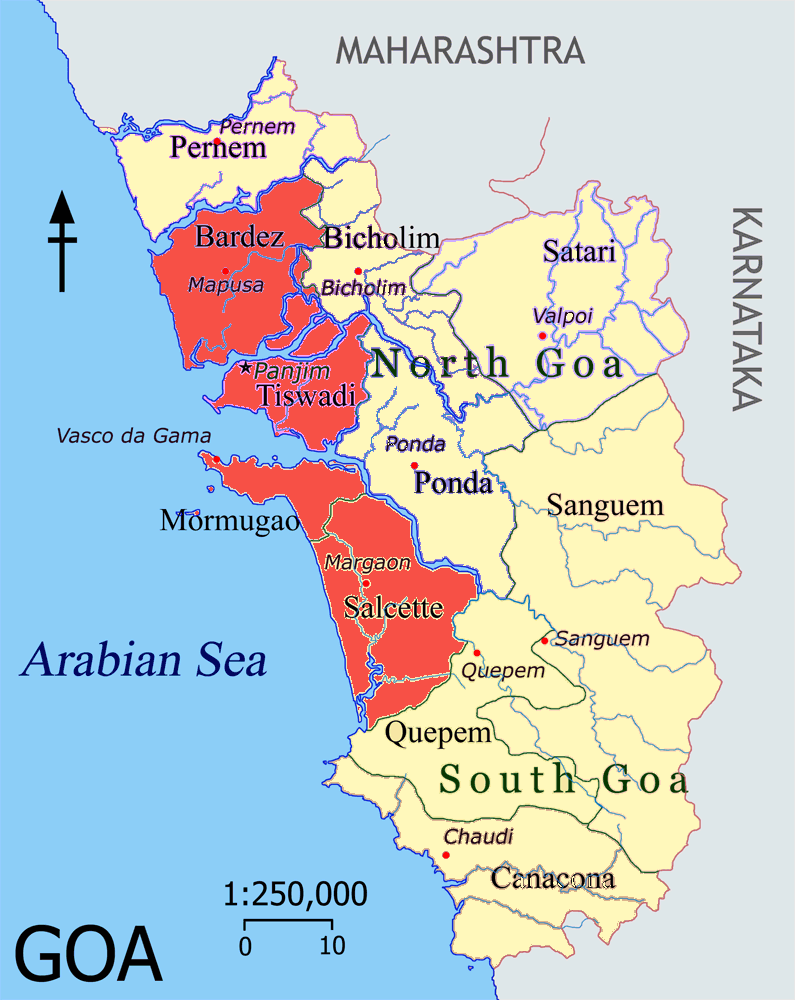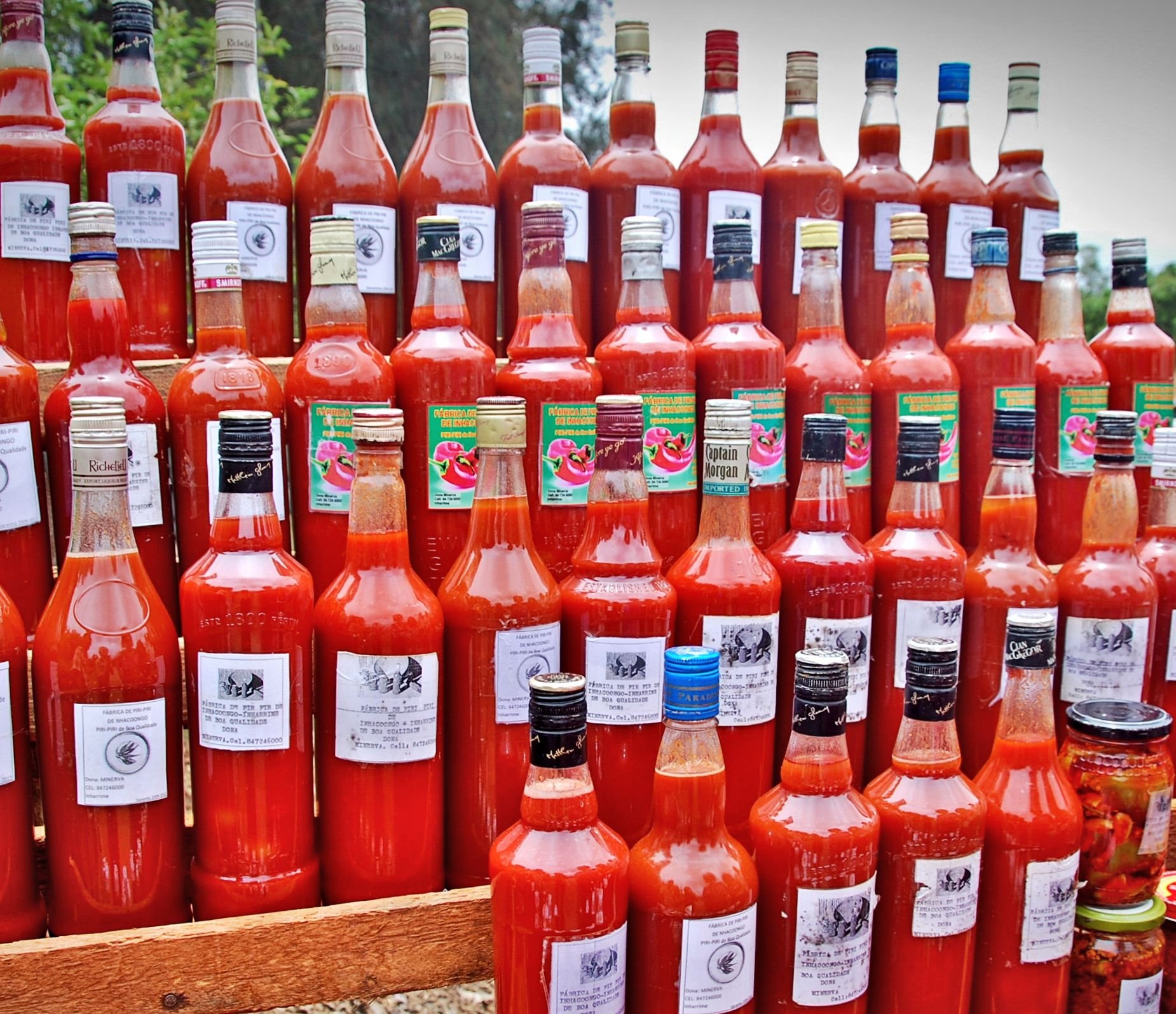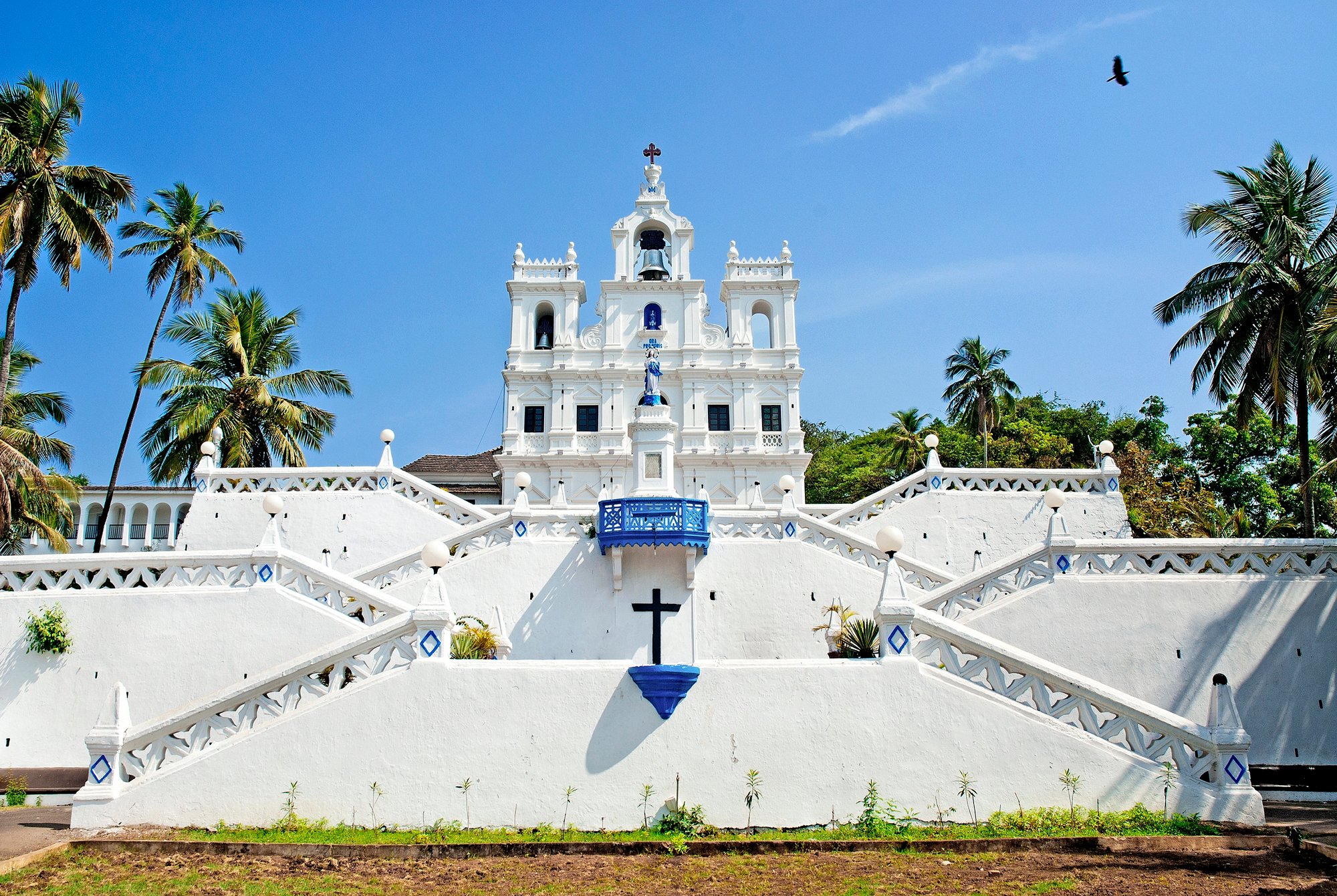When it comes to cycling, is Portugal on your radar? Well, we think it should be! In fact, we believe that Portugal offers some of the most scenic and diverse cycling routes in Europe. Want to ride along the ocean? Check. Got a thing for hills? Oh, our hills are alive with the sound of pedaling. Love to cycle through the forest? Does cork count? Because we’ve got many a road lined with them. Portugal invites cyclists to explore its rich landscapes, historic towns, and gorgeous scenery. Are you ready?
Ride the Former Rails on the Ecopistas
What, you may ask, is an ecopista? We’re glad you asked! They are actually former railway lines that have been converted into cycling and walking paths. These routes have gentle gradients, which make them perfect for casual riders and families. The Ecopista do Dão is one of the longest in Portugal, and it stretches 49 kilometers from Santa Comba Dão to Viseu. Along the way, cyclists pass through lush forests, vineyards, and rolling hills.

Another popular route is the Ecopista do Minho, which follows the Minho River near the Spanish border. This 27-kilometer path takes riders through picturesque countryside, charming villages, and areas rich in biodiversity. The Ecopista do Tâmega, stretching 40 kilometers, will give you a similar scenic experience as it winds through forests and valleys in northern Portugal.
What about Ecovias?
Ecovias are designed to link natural landscapes. They usually follow riverbanks or coastal areas. The Ecovia Litoral Norte is a stunning Portuguese coastal route that runs from Esposende to Caminha, covering 72 kilometers along the northern coast. Cyclists taking this route can enjoy breathtaking views of the Atlantic Ocean, sandy beaches, and traditional fishing villages.
Another remarkable route is the Ecovia do Rio Lima, which follows the Lima River and connects the historic towns of Ponte de Lima and Viana do Castelo. The path offers a blend of riverside tranquility and cultural heritage, with plenty of opportunities to stop and explore local landmarks.

Ride the Ciclovias
Portugal’s major cities have been expanding their urban cycling infrastructure to make commuting and sightseeing by bike more accessible. Lisbon, the capital, has over 100 kilometers of cycle paths, with more under development. The Tejo riverside route allows cyclists to ride along the Tagus River and passes iconic sights like the Belém Tower and the MAAT museum.
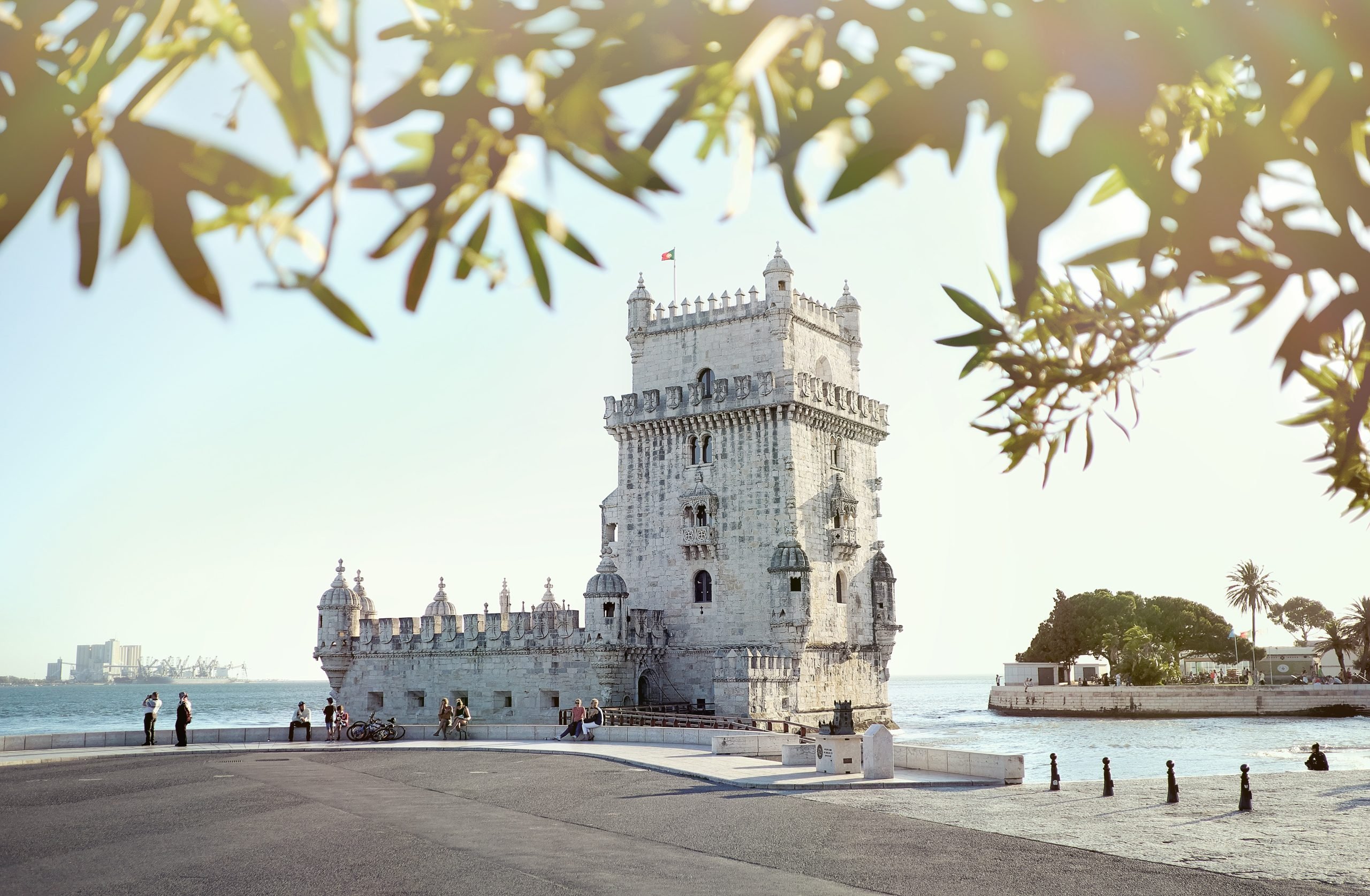
Porto has also embraced cycling culture, with paths along the Douro River offering spectacular views. The Foz do Douro cycling route is a favorite among locals and tourists and gives riders an easy and scenic journey from the city center to the coastline.
EuroVelo 1 – The Atlantic Coast Route
For those looking for a more long-distance adventure, the EuroVelo 1 route, also known as the Atlantic Coast Route, runs from the northern border with Spain to the Algarve. Covering over 1,200 kilometers, this route showcases Portugal’s diverse coastal landscapes, including rugged cliffs and sandy beaches.
Highlights along this path include the Costa Vicentina, known for its dramatic scenery and unspoiled nature. Cyclists also pass through vibrant seaside towns like Nazaré, famous for its giant waves, and Peniche, a paradise for surfers and seafood lovers.

Rota Vicentina – The Historical Way + Fishermen’s Trail
The Rota Vicentina is a network of trails along the southwestern coast of Portugal. It includes the Historical Way, which winds through rural villages, cork oak forests, and rolling hills. This inland path gives riders a glimpse into traditional Portuguese life with opportunities to stop at local wineries and historic sites.
The Fishermen’s Trail, another part of the Rota Vicentina, follows the coastline and provides some of the most dramatic views in Portugal. We don’t want to downplay the Rota Vicentina: this route is challenging and takes cyclists along cliffs, sandy trails, and rocky paths. Don’t worry though – you will be rewarded with breathtaking scenery at every turn.
Douro Valley – Does It Get More Beautiful Than This?
In our opinion, the Douro Valley might just be the most beautiful place in Portugal. It is famous for its terraced vineyards, winding roads, and breathtaking river views. Several cycling routes explore this UNESCO-listed region and offer riders a mix of gentle and challenging rides.
The Peso da Régua to Pinhão route follows the Douro River and passes some of Portugal’s most prestigious wine estates. Cyclists can stop for a wine tasting at a quintas (wine estate) or enjoy a scenic picnic along the way.
For a more demanding ride, the Alto Douro Wine Region route features steep climbs and rewarding panoramic views. The region’s hilly terrain makes it ideal for experienced cyclists looking for a challenge.
Alentejo – Rolling Hills and Historic Towns
The Alentejo region offers cycling routes through vast plains, cork oak forests, and charming medieval towns. The Évora to Monsaraz route takes riders from the UNESCO-listed city of Évora to the hilltop village of Monsaraz and passes through vineyards and olive groves.
Cyclists hoping for a multi-day adventure can follow the Alentejo Wine Route, which connects several wineries and historic sites. This region is known for its peaceful countryside, traditional cuisine, and well-preserved castles.
The Algarve – Inland + Coastal Routes
The Algarve is a top destination for cycling with its blend of inland and coastal routes. The Ecovia do Algarve spans over 200 kilometers and links the region’s stunning beaches, cliffs, and historic towns.
For a scenic coastal ride, the Lagos to Sagres route offers stunning views of the Atlantic Ocean. Inland, the Serra de Monchique route provides a more challenging ride through rolling hills and lush forests.
Madeira – Did Someone Say Tunnel?
Madeira, a subtropical volcanic island, is an emerging cycling destination. The island features steep climbs, dramatic cliffs, and coastal views that make for an exhilarating ride. The Pico do Arieiro climb is one of the most challenging routes and takes cyclists up to 1,818 meters above sea level.
For those looking for a more relaxed experience, the Ribeira Brava to Ponta do Sol route offers a scenic coastal ride with moderate inclines. Madeira’s year-round mild climate makes it a great choice for cycling enthusiasts.
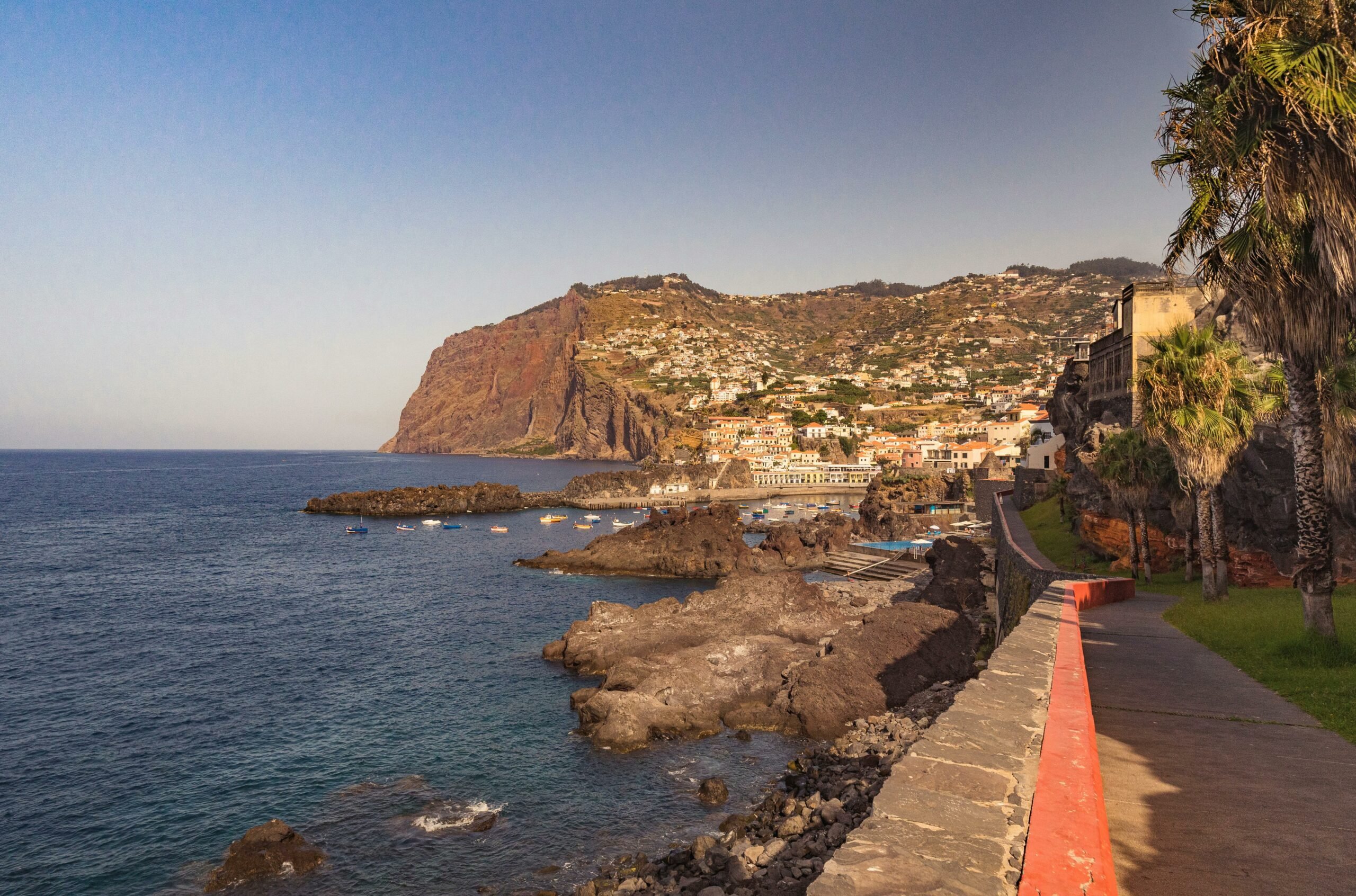
The Azores – Volcanic Island Cycling Tour
The Azores, a Portuguese archipelago in the Atlantic Ocean, provides unique cycling experiences through volcanic landscapes and lush greenery. São Miguel, the largest island, features several cycling routes, including the Sete Cidades loop, which circles two stunning crater lakes.
The Furnas route takes cyclists past geothermal hot springs, tea plantations, and botanical gardens. The Azores’ remote beauty and diverse terrain make it a hidden gem for cycling enthusiasts. We encourage you to go to Azores as soon as possible if you want to see it before it becomes even less hidden.

Where to Rent a Bike in Portugal
Portugal’s diverse cycling routes offer something for every type of rider. Before setting out, consider the route’s difficulty, distance, and terrain. Many trails provide detailed maps and online resources to help with planning. It’s also essential to check for bike rental services, accommodation options, and local weather conditions.
If you’re not bringing your own bike, Portugal offers a plethora of rental options in major cities and cycling hubs. In Lisbon, services like Bike Iberia and Lisbon Bike Rentals provide city, road, and electric bikes. Porto has several rental shops including Porto Rent a Bike and Velurb Bikes.
For those cycling in the Algarve, companies like Algarve Bike Holidays and Mountain Bike Adventure offer rentals with delivery options. The Douro Valley also has rental services in Peso da Régua and Pinhão, catering to wine-country cyclists.
If you’re tackling the EuroVelo 1 or Rota Vicentina, check out services in major starting points like Caminha, Peniche, and Sagres. Many rental companies offer guided tours and bikepacking gear for long-distance rides.

Final Thoughts – Why Cycle in Portugal?
Cycling in Portugal allows you to experience the country in an immersive and sustainable way. The well-developed network of ecopistas, ecovias, and urban ciclovias ensures that riders of all levels can enjoy the journey.
Explore the Douro Valley’s vineyards, navigate the coastal cliffs of the Algarve, or cycle through the historic streets of Lisbon – it’s all here in Portugal waiting for you to explore from the seat of your bicycle. So go ahead: get on your bike and start exploring this beautiful country. What are you waiting for?
